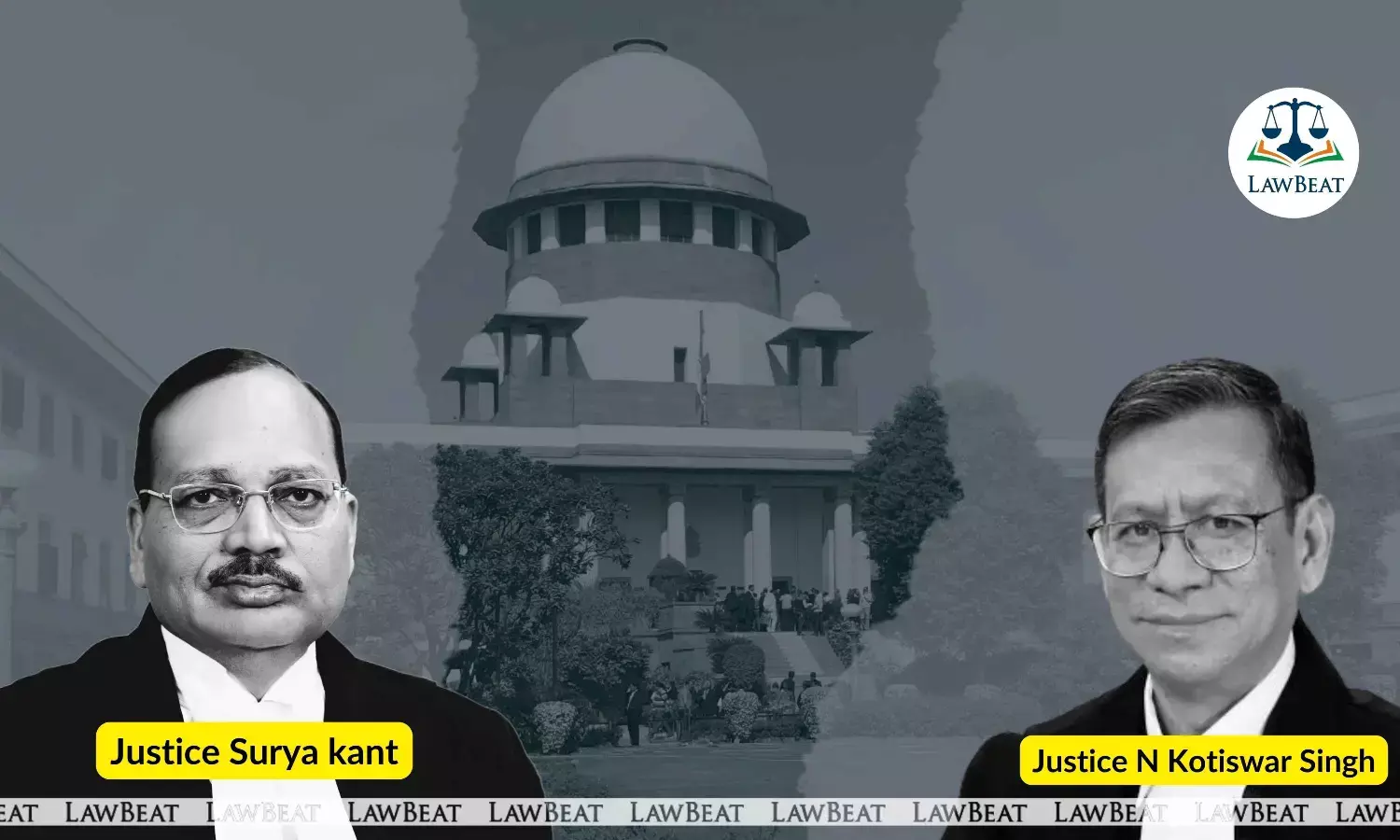Courts Not 'Debt Collectors': SC Warns Against Turning Civil Money Disputes into Criminal Cases

SC cautions against using criminal law as a tool to recover money, calls it a threat to justice delivery
The Supreme Court has strongly warned that the judiciary and police must not be used as instruments to recover money, observing that the menace of converting purely civil money disputes into criminal cases is growing and must be checked.
The Bench of Justice Surya Kant and Justice N. Kotiswar Singh made the remarks on Monday while hearing a criminal matter arising out of Uttar Pradesh in which serious criminal charges, including alleged kidnapping, had been pressed in what the bench said was essentially a dispute about recovery of money.
The court said the “threat of arrest” is being misused as a lever to pressurise opponents into paying dues.
Justice Surya Kant put the point bluntly: “Courts are not recovery agents for the parties to recover outstanding amounts. This misuse of the judicial system cannot be allowed.”
The Court stressed that registration of an FIR does not automatically mean immediate arrest; police must apply their minds to distinguish a genuine cognisable offence from a civil dispute that belongs in a civil forum.
The Bench’s intervention was prompted by what it described as a worrying trend: litigants are increasingly filing criminal complaints in money disputes, sometimes levelling grave offences such as kidnapping, to obtain quick leverage, effectively using criminal process as a debt-collection tool. The judges said this practice poses a “serious threat to the justice delivery system” and can unfairly weaponise the criminal law.
The Court recognised the dilemma faced by investigators.
Additional Solicitor General (ASG) K.M. Nataraj appearing for the Uttar Pradesh government, told the Court that police often get “stuck in the middle”: if they refuse to register an FIR when a cognisable offence is alleged, courts may reprimand them (pointing to the Lalita Kumari line of authorities); if they register, they are later accused of acting mechanically or without applying their mind. The Bench acknowledged this predicament but underlined that mechanistic registration must not become a route for private recovery.
To reduce such misuse the Bench suggested a practical solution: States may appoint a district-level nodal officer; preferably a retired district judge, whom the police can consult when in doubt about whether a complaint is civil or criminal in character.
The Court asked the ASG to take instructions on the proposal and report back within two weeks.
The Court’s observations echo earlier pronouncements by the Apex Court cautioning against criminalising civil disputes and using criminal prosecution as a pressure tactic to recover money.
Bench: Justice Surya Kant and Justice NK Singh
